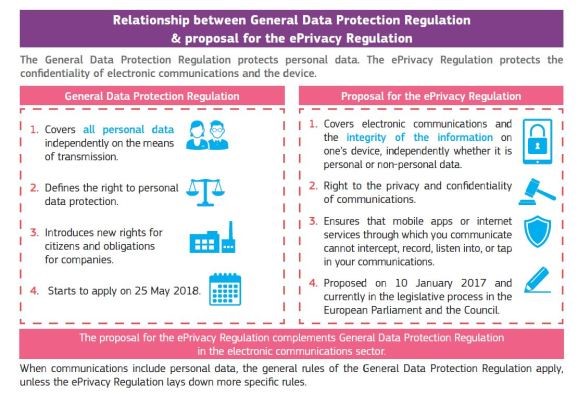Hordes of privacy advocacy lawyers have been in celebration mode since the big day for the European Union’s dreaded GDPR (General Data Protection Regulation) last Friday. Not so, Facebook and Google, who in a single day have managed to rack up a cool $8.8 billion in related lawsuits.
Now, advocates and activists are even going after a number of other tech giants including Apple, Amazon, and Microsoft, with some even suggesting that it may be easier to block 500 million users than to comply with the new laws.
Adopted two years ago, the GDPR is an EU law that's meant to protect private data by regulating how companies with a presence in the region, including Facebook and Google, collect, store and process your data with stiff penalties for non-compliance. The law also allows ordinary users to restrict how their information is used by these companies.
With the dust barely settled, the $8.8 billion in lawsuits were filed by Austrian pro-privacy advocate and long-time Facebook critic, Max Schrems, on behalf of an unnamed group of people who claim the two internet giants and their products--such as WhatsApp, Instagram, and Google’s Android OS--violated some GDPR provisions.
This Is Just the Beginning
At the crux of the Facebook lawsuit is what Schrems says is these giants’ practice of forcing users to share their personal data and blocking accounts of users who refuse to give their consent.
Schrems argues that the choice for users to delete their accounts is not a free one and compares Facebook's behavior to North Korea's notorious electoral process. Google had earlier faced similar allegations, though both companies continue to maintain they are fully compliant with the new EU laws.

(Click to enlarge)
Source: Venture Beat
While Facebook and Google lawyers will no doubt have their work cut out trying to prove the companies' innocence against an expected plethora of GDPR lawsuits, that is likely to be only the beginning. Tougher times are surely ahead now that the data privacy cat is definitively out of the bag.
EU regulators have been busy formulating more stringent rules that will plug any gaps left uncovered by GDPR. Related: Banking Giant Accidentally Loses $35 Billion
The new rules, dubbed ePrivacy Regulations, will essentially take rules that govern traditional telcoms services such as landline telephone calls and extend them to internet services such as Facebook, Google, WhatsApp and Instagram. In effect, the new rules will make it illegal for these services to tap, listen to, intercept or record any of your communications or use your data even in any anonymized fashion. Phew!
Spit Shower
Interestingly, just a day earlier, a recalcitrant Facebook declared that it won't compensate users over data misuse or its role in the Cambridge Analytica data-leak scandal. Facebook contends that while the data misuse constitutes a breach of trust, no customer details including bank and credit card information were shared with third parties.
Companies live and die by their reputations, as any honest corporate relations department will tell you. Public perception of unethical business practices, lax security, toxic work environments or internal scandals can not only attract disdain from the American consumer but also hefty fines in this increasingly litigious nation.
The list of companies that have been forced to honor warranty claims until they bled white keeps growing. Just ask Japan's Takata, which went belly up last year after its faulty airbags started blowing up in the faces of drivers and passengers. Or United Airlines, still in the dog house after its crass act of forcibly evicting a passenger from its plane.
Facebook is now ranked worse than United Airlines in list of America's most-hated companies, thanks to the Russia and Cambridge Analytica data scandals.
Facebook has been trying to limit the damage using some ingenious moves such as shifting responsibility of users to the U.S. where data legislation is less strict. It's going to be interesting to see how the company responds when U.S. legislators decide to borrow a leaf from their no-nonsense European cousins.
By Alex Kimani for Safehaven.com
More Top Reads From Safehaven.com
















